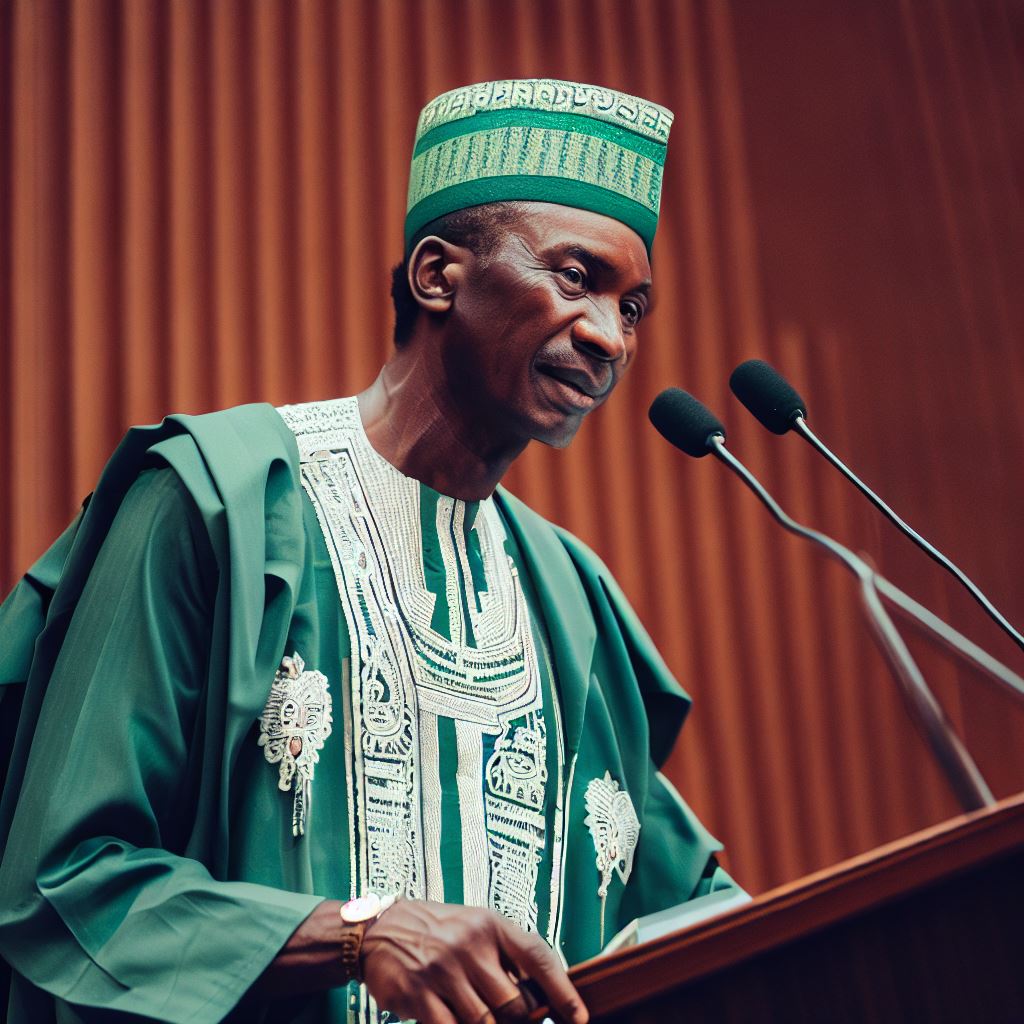Introduction
Corruption in politics is a rampant issue that affects societies worldwide. Understanding the Nigerian perspective on this matter is crucial for a well-rounded analysis.
In a country where corruption in politics has become deeply rooted, it is vital to shed light on this issue from a Nigerian standpoint.
Corruption is a cancer that eats away at the fabric of society, undermining the trust and credibility necessary for effective governance.
In Nigeria, corruption has permeated all levels of political leadership, hindering progress, economic development, and social stability.
By examining corruption within the Nigerian political landscape, we can gain a deeper understanding of the intricacies involved and explore possible solutions.
Additionally, a Nigerian perspective is vital for addressing the specific challenges faced by the country.
Nigeria’s diverse ethnic, cultural, and religious groups shape the dynamics of corruption in politics, requiring a nuanced approach.
Furthermore, Nigeria’s immense population and rich resources make it a significant player on the international stage.
Consequently, corruption in Nigerian politics not only affects the country but also has regional and global implications.
Therefore, it is crucial to examine corruption in politics from a Nigerian perspective to foster transparency, accountability, and good governance for the betterment of society as a whole.
Understanding Corruption in Nigerian Politics
Understanding corruption in Nigerian politics requires a comprehensive view of its definition, forms, historical context, and prominent cases.
A. Corruption and its various forms
Corruption refers to the abuse of power or position for personal gain or the detriment of society.
Forms of corruption in Nigerian politics include bribery, embezzlement, nepotism, and electoral fraud.
Corruption, in general, involves the misuse of power or authority for personal benefits, thereby causing harm to society.
In Nigerian politics, various forms of corruption exist, including bribery, embezzlement, nepotism, and electoral fraud.
B. Historical context of corruption in Nigerian politics
Corruption has deep roots in Nigeria, dating back to the pre-colonial era. During colonization, corrupt practices were perpetuated by the colonial masters for their benefit.
After gaining independence, corruption continued to flourish due to weak institutions and lack of accountability.
The oil boom in the 1970s worsened corruption, as massive wealth was misappropriated by government officials.
These corrupt practices have a long-standing history, dating back to the pre-colonial era.
During colonization, corruption was perpetuated by the colonial masters to exploit Nigeria’s resources and maintain control.
After gaining independence, corruption continued to thrive due to weak institutional frameworks and accountability mechanisms.
The discovery of oil in Nigeria further exacerbated corruption. The massive influx of wealth during the 1970s oil boom provided ample opportunities for government officials to engage in corrupt practices.
Unfortunately, corruption became deeply entrenched within the political system, with high-ranking officials misappropriating funds meant for public welfare.
C. Examples of high-profile corruption cases in Nigeria
To illustrate the prevalence of corruption in Nigerian politics, several high-profile cases can be examined.
Diezani Alison-Madueke, a former Minister of Petroleum Resources, was involved in allegations of embezzlement amounting to billions of dollars.
The Halliburton scandal exposed bribery between Nigerian officials and an American company, demonstrating the complicity of both local and foreign entities in corruption.
Another noteworthy case is James Ibori, the former governor of Delta State, who was convicted of money laundering and embezzlement.
Additionally, the “Arms Deal Scandal” implicated senior government officials in diverting funds intended for national security, compromising the safety and well-being of Nigerian citizens.
All in all, corruption remains a significant challenge within Nigerian politics.
Understanding the definition, various forms, historical context, and prominent corruption cases provides insights into the extent of this issue.
Addressing corruption requires a multi-faceted approach, including strengthening institutions, promoting transparency and accountability, and prosecuting corrupt individuals.
Only through collective efforts can Nigeria overcome the devastating effects of corruption on its political landscape and pave the way for a better future.
Read: From Local to National: Political Offices in Nigeria
Causes of Corruption in Nigerian Politics
Corruption in Nigerian politics has been a persistent issue that has hindered the country’s progress.
It has resulted in a lack of development, misallocation of resources, and a decrease in public trust.
Understanding the causes of corruption is crucial in finding effective solutions to this deeply rooted problem.
A. Lack of strong governance and weak institutions
Inadequate governance structures and weak institutions play a significant role in promoting corruption in Nigerian politics.
The absence of strong mechanisms to hold politicians accountable allows corruption to thrive unchecked.
It creates an environment where individuals can misuse public funds for personal gain without facing any consequences.
B. Low salaries and inadequate funding for public officials
Another factor contributing to corruption is the low salaries and inadequate funding provided to public officials.
When individuals in positions of power are not adequately compensated, they are more likely to engage in corrupt practices to supplement their income.
This can lead to bribery, embezzlement, and other dishonest activities.
C. Influence of money in politics
The influence of money in Nigerian politics further perpetuates corruption.
Political campaigns often require substantial funding, which can create a dependence on wealthy individuals or interest groups.
When politicians rely heavily on financial support from these sources, they may feel obligated to reciprocate by offering favors or engaging in corrupt practices.
D. Culture of impunity and lack of accountability
A culture of impunity and lack of accountability contribute significantly to the prevalence of corruption in Nigerian politics.
Many corrupt individuals go unpunished due to a flawed judicial system, weak law enforcement, and a lack of political will to prosecute those involved in corrupt activities.
This creates a sense of impunity, where politicians believe they can act with impunity without facing any consequences.
In fact, the causes of corruption in Nigerian politics are multi-faceted and interconnected.
The lack of strong governance and weak institutions, low salaries and inadequate funding for public officials, the influence of money in politics, and the culture of impunity all contribute to the perpetuation of corruption.
Addressing these causes requires a comprehensive approach that includes strengthening governance structures, ensuring fair compensation for public officials, promoting transparency in political financing, and increasing accountability mechanisms.
Only through these efforts can Nigeria overcome the challenges posed by corruption and pave the way for a more prosperous future.
Read: The Political Economy: Nigeria’s Leaders and Policies
Impacts of Corruption on Nigerian Politics
A. Undermining trust in government and democratic institutions
Corruption erodes the trust citizens have in their government and democratic institutions.
When politicians engage in corrupt practices, it creates a perception of a dishonest and unaccountable government.
This lack of trust leads to a decline in citizen participation in politics and a loss of confidence in the democratic system.
Consequently, the legitimacy of the government is compromised, making it difficult to implement effective policies and reforms.
B. Hindering economic development and foreign investments
Corruption in politics deters foreign investors from investing in Nigeria. Investors are hesitant to commit their capital to a country where corruption is widespread.
This hinders economic development, as foreign investments play a crucial role in stimulating economic growth and creating job opportunities.
Additionally, corrupt practices divert resources away from essential sectors such as healthcare, education, and infrastructure, further hindering progress.
C. Widening wealth inequality and exacerbating poverty
Corruption in Nigerian politics perpetuates wealth inequality and exacerbates poverty.
Corrupt politicians prioritize personal gains over the welfare of the people, leading to a concentration of wealth in the hands of a few.
Consequently, the gap between the rich and the poor widens, as resources meant for development are diverted for personal enrichment.
This disparity in wealth distribution traps many Nigerians in a cycle of poverty, limiting their access to basic necessities and opportunities for upward mobility.
D. Fostering social unrest and political instability
The prevalence of corruption in Nigerian politics contributes to social unrest and political instability.
When citizens witness politicians embezzling public funds without consequences, it fuels feelings of injustice and inequality.
This can lead to protests, strikes, and other forms of civil unrest, as people demand accountability and transparency.
Moreover, corruption creates a breeding ground for extremism and undermines the rule of law, further destabilizing the political landscape.
In short, corruption in Nigerian politics has far-reaching impacts that undermine trust in government and democratic institutions, hinder economic development and foreign investments, widen wealth inequality, exacerbate poverty, and foster social unrest and political instability.
It is crucial for Nigerian authorities to combat corruption effectively through robust legislation, strengthening accountability mechanisms, and promoting transparency.
Only by addressing this issue can Nigeria build a more prosperous and fair society for its citizens.
Read: Youth in Nigerian Politics: A New Era of Leadership
Efforts to Combat Corruption in Nigerian Politics
A. International initiatives and cooperation
- The Nigerian government has actively engaged with international organizations to combat corruption.
- Partnerships with organizations such as the United Nations and World Bank have provided resources and expertise.
- Joint efforts aim to strengthen legal frameworks, promote good governance, and recover stolen assets.
- International cooperation plays a crucial role in investigating and prosecuting corrupt individuals and networks.
- Collaboration with foreign governments assists in extraditing fugitives and freezing their illicit assets.
B. Domestic reforms and legislative measures
- The Nigerian government has introduced various reforms and enacted legislation to address corruption.
- Laws such as the Independent Corrupt Practices and Other Related Offences Commission Act target corrupt practices.
- Legal amendments have increased penalties for corrupt offenses, sending a strong message against corruption.
- Reforms focus on streamlining government procedures, reducing bureaucracy, and improving accountability.
- Efforts aim to create a favorable environment for investment and economic growth.
C. Strengthening anti-corruption agencies and law enforcement
- The Nigerian government has invested in enhancing the capacity and autonomy of anti-corruption agencies.
- Agencies such as the Economic and Financial Crimes Commission (EFCC) have received increased funding and support.
- Training programs are provided to improve investigative techniques, intelligence gathering, and prosecution skills.
- Efforts are made to ensure the independence of these agencies to effectively tackle corruption.
- Specialized units and task forces are established to target specific areas of corruption, such as money laundering.
D. Promoting transparency and citizen participation
- The Nigerian government promotes transparency through initiatives such as the Open Government Partnership (OGP).
- Citizens are encouraged to participate in decision-making processes and hold public officials accountable.
- Platforms for citizen engagement, like social media and whistleblower protection programs, empower individuals to report corruption.
- Government information is made accessible, and public procurement processes are subjected to scrutiny.
- Policies are developed to ensure transparency in electoral processes and political financing.
Read: Nigeria’s Political Landscape: A 2023 Outlook

Challenges and Obstacles in Combating Corruption
A. Political will and resistance to change
- Politicians often lack the determination to tackle corruption head-on.
- Resistance from those in power hinders efforts to implement effective anti-corruption measures.
- Corrupt politicians may prioritize personal gain over the welfare of the nation.
B. Inadequate legal frameworks and enforcement
- Existing laws may not be comprehensive or stringent enough to effectively combat corruption.
- Weak enforcement mechanisms contribute to a culture of impunity for corrupt individuals.
- Legal loopholes and delays in the judicial process hinder successful corruption prosecutions.
C. Lack of public awareness and civic engagement
- Citizens often have limited knowledge about their rights and the detrimental effects of corruption.
- Apathy and indifference towards corruption issues prevent active citizen participation in combating corruption.
- Low civic engagement and insufficient pressure on political leaders contribute to the perpetuation of corruption.
D. Corruption within anti-corruption agencies
- Some individuals within anti-corruption agencies may be complicit in corrupt practices.
- Corruption within these agencies undermines their effectiveness and erodes public confidence.
- Infiltration by corrupt elements weakens efforts to curb corruption at its core.
In review, combating corruption in Nigerian politics faces numerous challenges and obstacles:
- The lack of political will coupled with resistance to change from those in power.
- Inadequate legal frameworks and weak enforcement mechanisms.
- Limited public awareness and lack of civic engagement.
- Corruption within anti-corruption agencies, undermining their effectiveness.
Addressing these challenges requires a multi-faceted approach, including:
- Creating an environment that fosters political will and transparency.
- Strengthening legal frameworks and ensuring their effective enforcement.
- Increasing public awareness and education on the negative impact of corruption.
- Implementing reforms within anti-corruption agencies to ensure integrity and accountability.
- Encouraging civic participation and holding political leaders accountable for their actions.
Only through concerted efforts and a collective commitment to combating corruption can Nigeria pave the way for a more transparent and accountable political system.
Enhancing Transparency and Accountability in Nigerian Politics
A. Encouraging ethical leadership and political will
- Leaders should prioritize integrity and show a commitment to serving the interests of the Nigerian people.
- Politicians need to be held accountable for their actions and face consequences for engaging in corrupt practices.
- Strengthening legislation that will enforce stricter penalties for corruption in politics is imperative.
- Political parties should vet candidates thoroughly to ensure they have a clean record and promote ethical leadership.
B. Utilizing technology to promote transparency and citizen engagement
- Implementing e-governance platforms can streamline processes and reduce opportunities for corruption.
- Online portals should provide easy access to information on government projects, budgets, and expenses.
- Citizens should be encouraged to actively participate in online discussions and provide feedback on government actions.
- Developing innovative applications and tools, such as mobile apps, can enhance transparency and increase citizen engagement.
C. Strengthening whistleblower protection and legal mechanisms
- Whistleblowers play a crucial role in exposing corruption, so their protection must be prioritized.
- Establishing an independent agency that safeguards the identity of whistleblowers can encourage more people to come forward.
- Effective legal mechanisms need to be in place to ensure whistleblowers are not victimized or face retaliation.
- Encouraging active collaboration with international organizations can provide additional support and expertise.
D. Educating the public and promoting civic participation
- Implementing comprehensive civic education programs can empower citizens to understand their rights and responsibilities.
- Media plays a crucial role in educating the public and exposing corrupt practices, so press freedom must be protected.
- Civil society organizations should organize awareness campaigns and workshops to promote civic engagement.
- Create platforms for open dialogue between citizens and political representatives to build trust and foster reciprocal accountability.
By implementing these strategies, Nigeria can enhance transparency and accountability in its political system.
It’s crucial that ethical leadership is encouraged, technology is utilized for citizen engagement, whistleblower protection is strengthened, and public education is improved.
Only by addressing corruption can Nigeria unlock its full potential and foster a truly democratic and prosperous nation.
Conclusion
A. Key Points
In this blog, we’ve explored the rampant corruption in Nigerian politics.
We’ve highlighted its damaging effects, including economic stagnation and social unrest.
We’ve also examined potential solutions, such as transparency and accountability measures.
B. Addressing Corruption
Addressing corruption in Nigerian politics is not a choice; it’s an imperative.
It erodes public trust, diverts resources, and hinders development.
It’s high time we demand ethical leadership and rigorous anti-corruption measures.
C. Encouraging Conversation and Action
Let this blog serve as a catalyst for conversation and action.
Share your thoughts, engage in debates, and hold leaders accountable.
Publish Your Professional Profile, Business or Brand
Showcase your expertise, gain trust, and boost visibility instantly on Professions.ng.
Publish NowTogether, we can strive for a Nigeria where political corruption is a relic of the past.




